
1 Feb, 2023
Critical Tourism Studies conference in Vietnam will reset the post-Covid agenda
Bangkok — The post-Covid travel & tourism agenda in the Asia Pacific is heading for a major reset at the upcoming 3rd Critical Tourism Studies (CTS) Conference to be held in Vietnam, Hanoi, between 13-17 February 2023. In a radical departure from the politically correct topics which dominate the humdrum travel trade business forums, dozens of academics will be presenting papers that address the “exceptional challenges” of the post-Covid environment in order to “pave the way for a future that accounts for the deepest concerns of communities, businesses, and governments.”
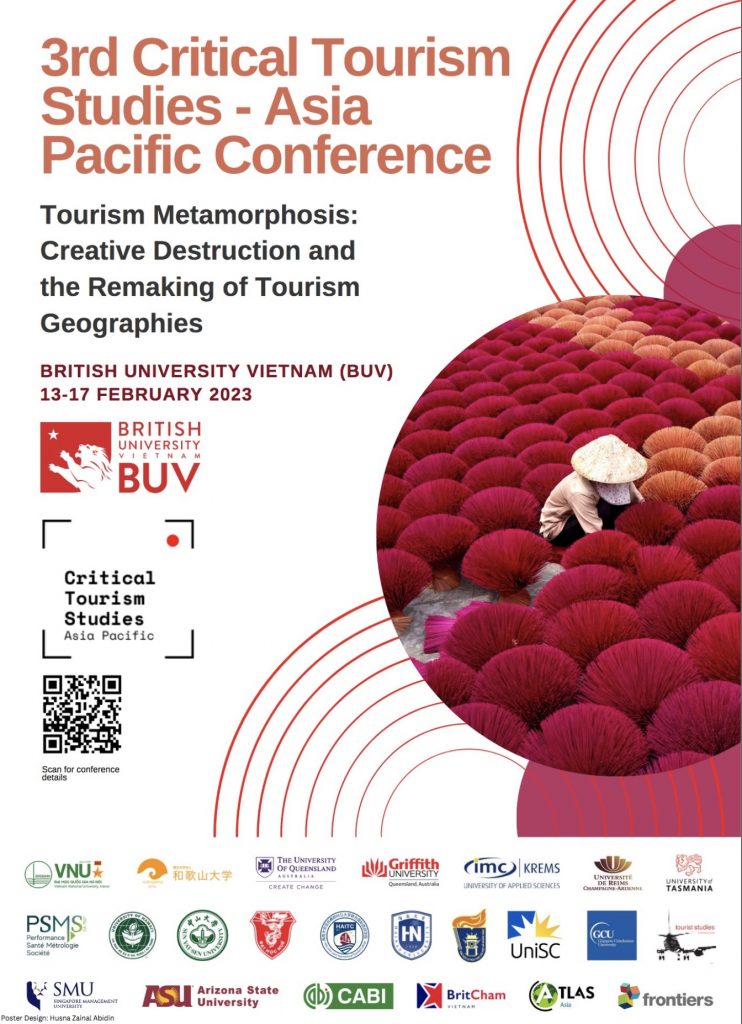
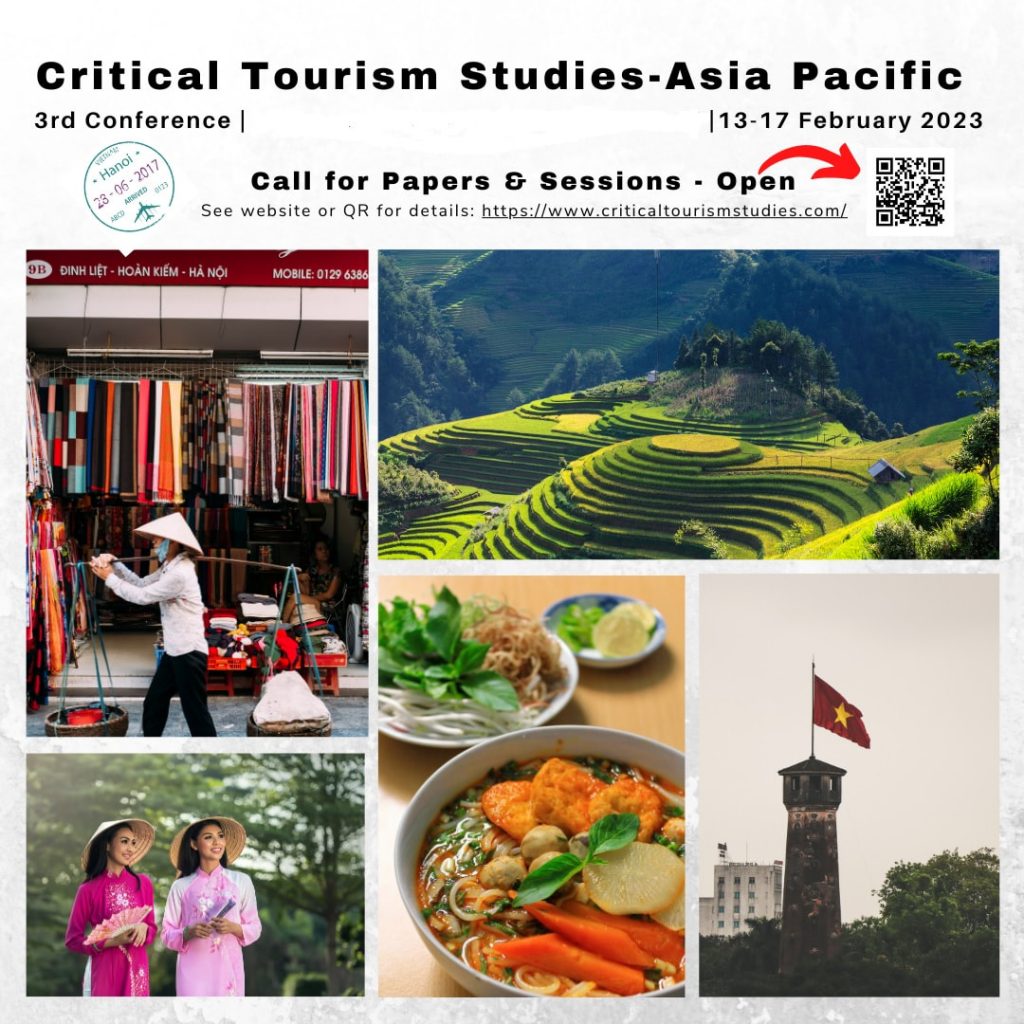
Under the theme of “Tourism Metamorphosis: Creative Destruction and the Remaking of Tourism Geographies”, the conference content is designed to revamp the “the kind of thinking that created today’s global turbulence” in the first place and instead explore “new ways of thinking, new ways of doing, and new ways of talking about tourism, to address the issues of these troubled times.” It recognises that “new, more conscious travel experiences have the potential to prioritize the wellbeing of the planet and its people over the pure pursuit of profits.” At the same time, “these kinds of radical shifts require new concepts, stories and philosophies to make sense of the global present.”
These “deepest concerns” will cover the anthropological, geopolitical, social and cultural dimensions of tourism – known in corporate jargon as the “operating environment”. The hackneyed slogans of Resilience and Recovery have been replaced with three sub-themes: Responsibility, Resistance and Resurgence. The conference website promises that dialogues “will be bold, pushing the boundaries of tourism research into novel and challenging frontiers of scholarship. Contributions will transition from narratives of ‘troubled times’ and simplistic entreaties such as ‘building back better’, towards substantive queries into how creative destruction is afoot.”
Nothing is off the table. Topics include the Uneven Development and disproportionate power of Global Capitalism, the biopolitical gap between the power and powerless, the geopolitical clash between cooperation and competition, the regulation vs deregulation dilemma facing neoliberalism and the endangered vs exploited status of Nature. Papers will probe whether “regenerative tourism” is substance or hype and the efficacy or impracticality of governance.
The papers to be presented under the three sub-themes elevate the discourse to a game-changing level, as follows:
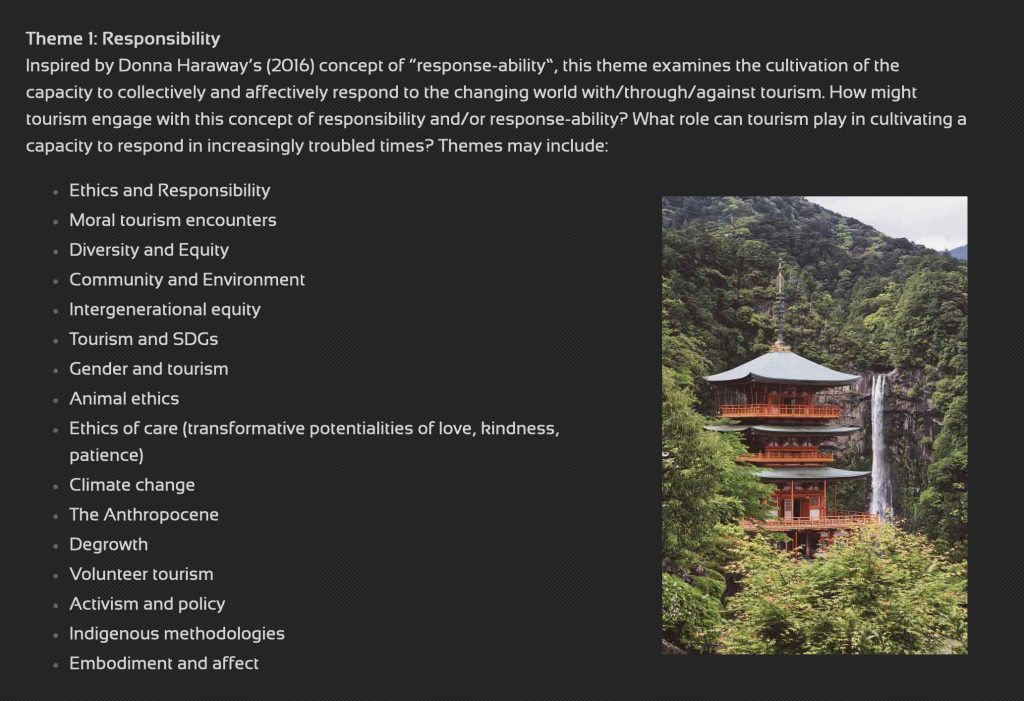
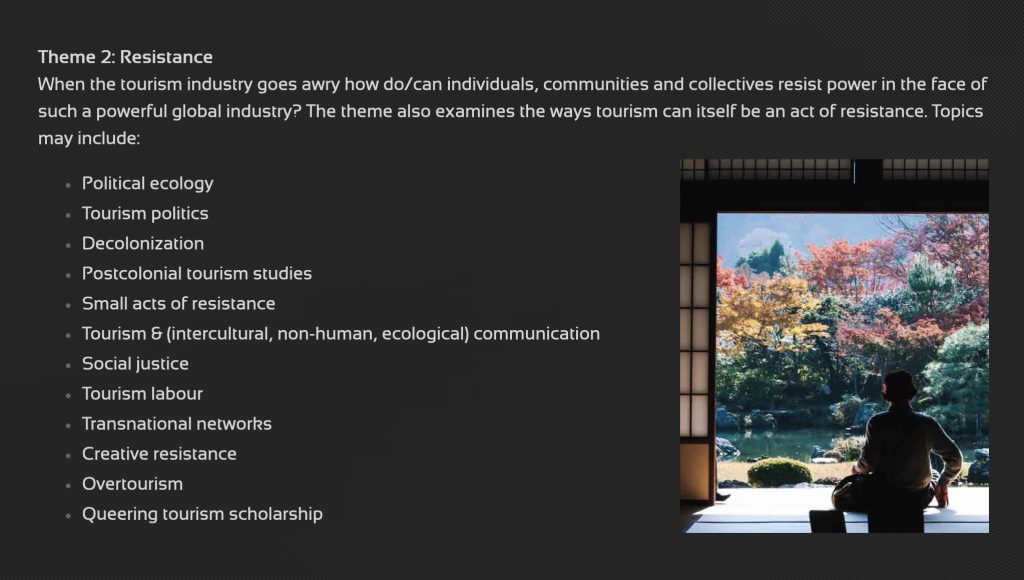
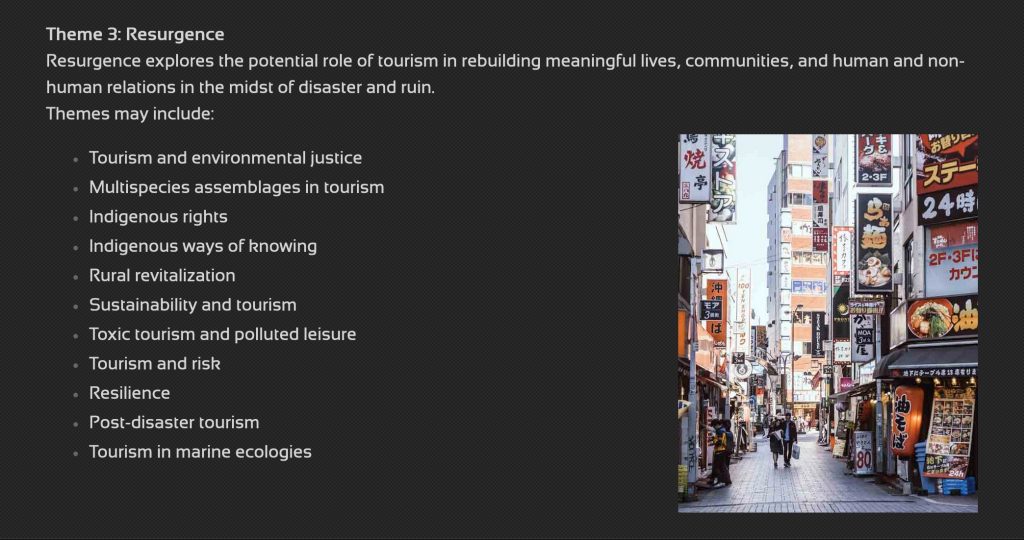
The keynote speakers reflect the changing content paradigm. They include academics who have researched a broad range of subjects from peasant radicalism in Haiti and Jamaica to World Heritage Sites in China and the role of the community in developing plans in Vietnam. Others have studied cultural politics, tourism and rural-urban relations. One has written a paper on the provocative topic of ‘Commoditizing His Majesty’s Footprints: Tourism in Highland Ethnic Communities in Northern Thailand’. One speaker has studied the relationship between cultural awareness and visitor satisfaction. Another has probed Western-centrism in tourism theory, especially its implications for transnational education.
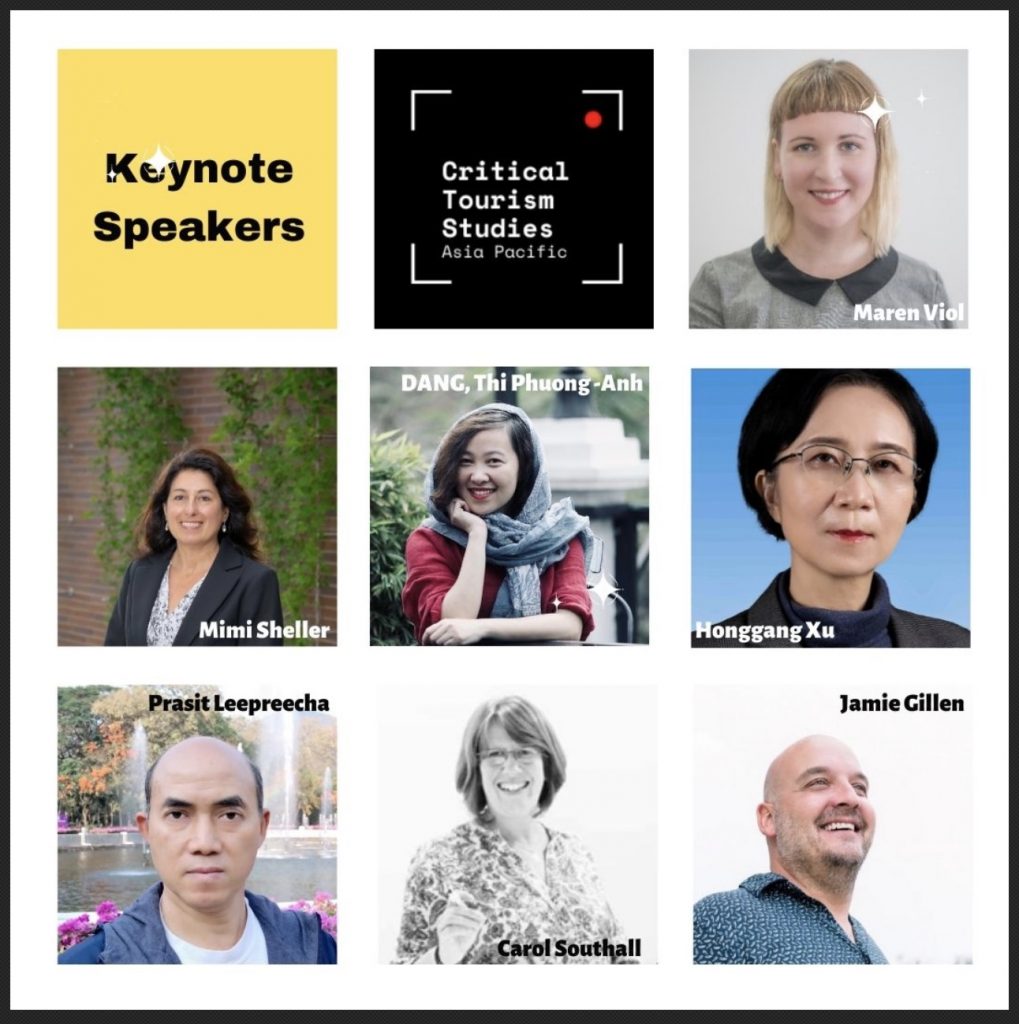
The Asia-Pacific conference is the third since the first at Gadjah Mada University in Jogjakarta, Indonesia, in 2018 and the second one at Wakayama University, Japan, in 2020. This year’s theme “Tourism Metamorphosis:Creative Destruction and the Remaking of Tourism Geographies” follows on from an earlier CTS conference held in Lazaretto, Maó, Menorca, 27 June – 1 July, 2022 for a European audience. Its theme of “WITH IN DANGEROUS TIMES” sounded like a mistake until I read the clarification: “WITH is the subject of this phrase. With as being. Be with us for a week of conversations, creativity, listening, and contemplation about with in this dangerous time. Be with us for food, light, warmth, sea, wine, and … Be with us for passion, care, joy, knowledge, and love.”
That event, too, stressed the role of tourism as a bond for humanity. It said, “We hope together we can move beyond the idea of the binary separation between individuality and collectivity. We are singular plural. From the first beat of our existence we become, thanks to, and through, others. With is not a link between two different entities like you/me, self/other, home/away, host/guest. Instead, we are always already becoming in relation. Tourism, too, is always already relational.”
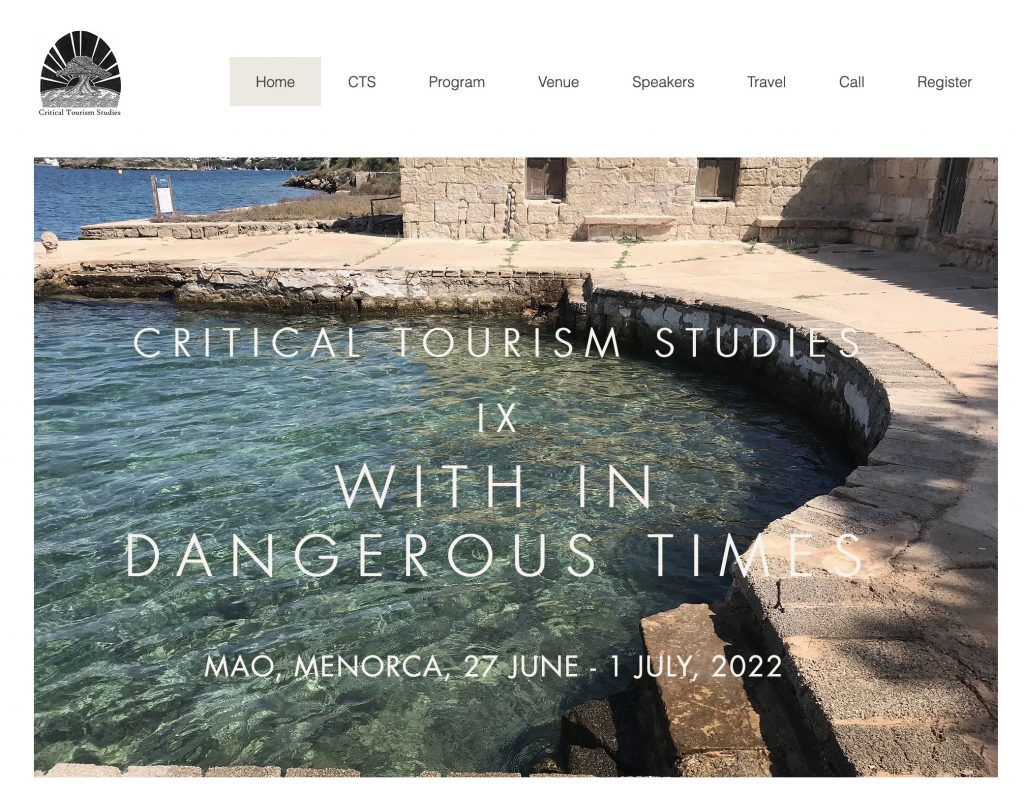
The Menorca conference invited contributions “ranging from the traditionally intellectual to the innovative, artistic, and experiential” in the fields of critical hospitality studies, critical events studies, critical leisure studies, critical sport studies. It also went one step further: “In Menorca, we want to recover the joy and appreciation of the art of cultivating and receiving food from the earth, and of sharing it with one another, so we therefore invite you to share with us not just your knowledge of tourism, but also your favourite recipes. Please, send us these together with your abstracts. If a recipe has a special history for you, please share this as well.”
Such depth of language and intentions does not exist at commercial travel trade events. In the new post-Covid era, however, these voices of critical thinking deserve to be respected, valued and heard more than ever.
By its very definition, critical thinking instills some check and balance into the planning process. It also demands transparency and accountability, which does not resonate well with upper-crust public-private sector executives because it implies they goofed up. Sweeping past errors under the carpet is precisely why pre-Covid tourism often became a victim of its own “success” in many parts of the world.
Mainstreaming critical thinking in Travel & Tourism will lead to a downstream ripple effect on commercial travel trade events. There, such issues have been swept under the carpet as being too political or not relevant to the main purpose, viz., to promote business. But business can only operate safely and profitably in a secure and stable operating environment. By defining “sustainability” only in the context of the natural environment, corporate leaders have done a huge disservice to their customers, clients, employees and shareholders.
University tourism departments, too, can broaden and deepen their curricula. They have historically been accused of not producing “qualified” personnel. But “qualified” to do what? In Dangerous Times, “qualifications” go well beyond the technicalities of running a hotel or convention centre. They are rendered useless if the neighbourhood is on fire. Critical thinking allows students of tourism to work not on fire-fighting but fire-prevention and acquire skills well beyond bean-counting. Academics, too, benefit from the knowledge exchange from around the world and across multiple disciplines which can then be correlated to their own local areas.
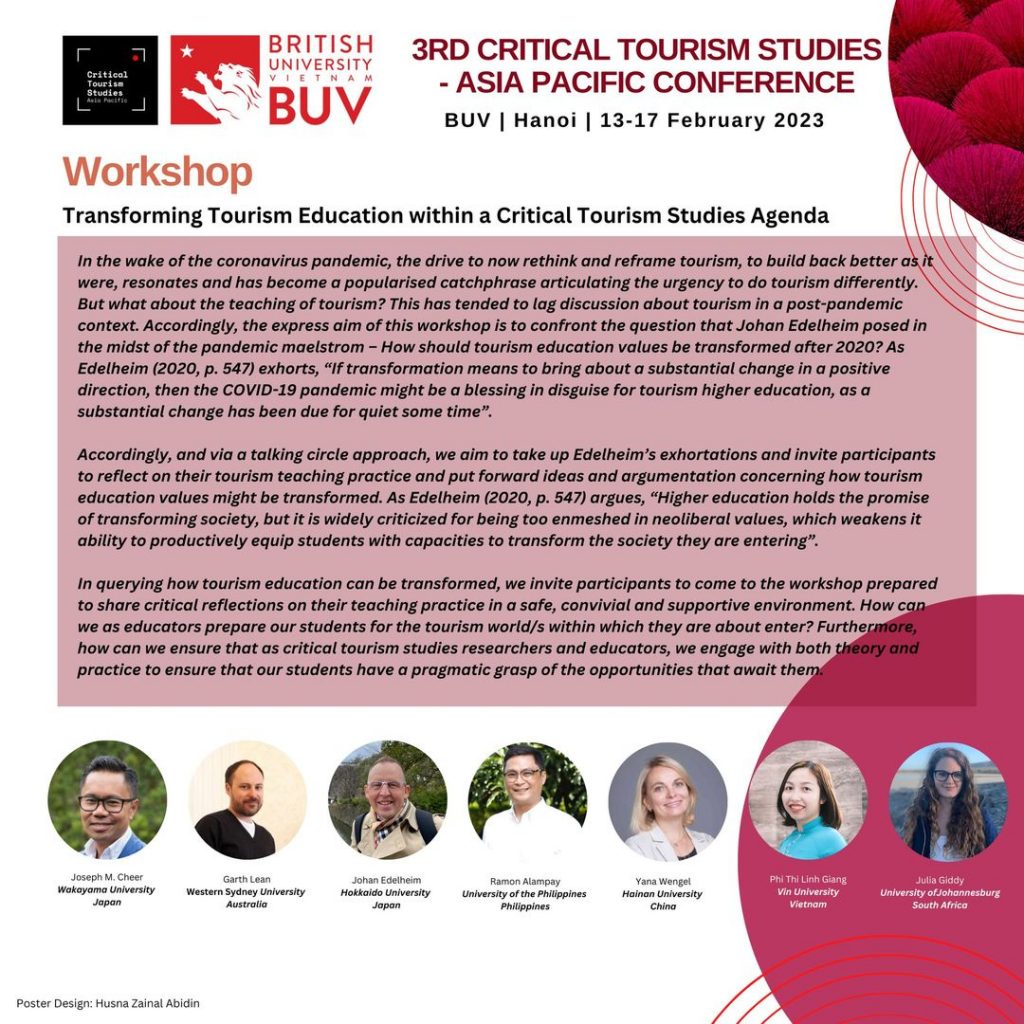
If they wish to right the wrongs of pre-Covid tourism era, decision-makers, investors, designers and planners in both the public and private sectors need to stop over-listening to the usual gang of “futurists, visionaries and thought-leaders” and start involving critical thinkers right across the value chain. Breaking out of the usual comfort zones and exploring alternative perspectives is like going to a doctor for a second opinion. It can prove to be a life-saver.



Liked this article? Share it!